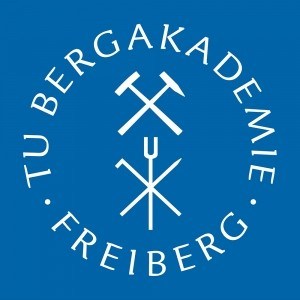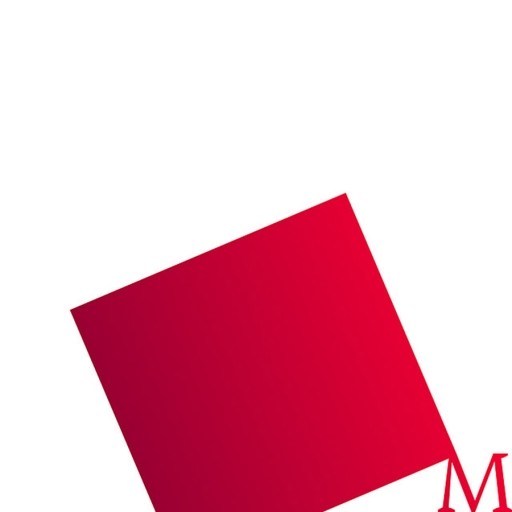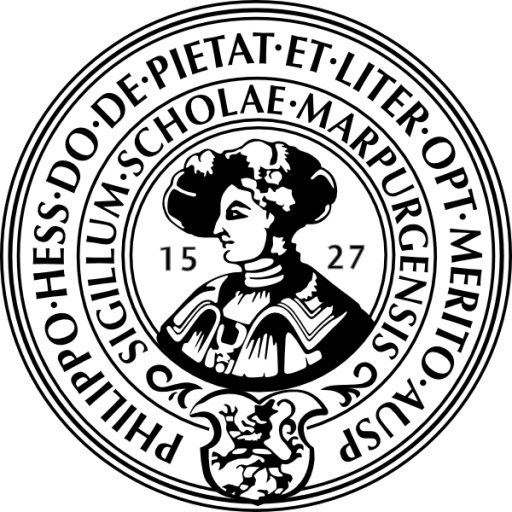Photos of university / #uni_fau
The Advanced Materials and Processes (MAP) master's program at Friedrich-Alexander University Erlangen-Nuremberg offers an interdisciplinary and research-oriented education designed to prepare students for innovative careers in the field of materials science and engineering. This program focuses on the development, characterization, and application of advanced materials that are crucial for technological progress across various industries, including automotive, aerospace, electronics, healthcare, and energy. Students will gain in-depth knowledge of the structure-property relationships of various materials such as metals, ceramics, polymers, nanomaterials, and composites, enabling them to understand how these materials can be tailored for specific high-performance applications.
Throughout the program, students are engaged in cutting-edge research topics and sophisticated experimental techniques, fostering a hands-on learning environment that combines theoretical fundamentals with practical skills. The curriculum includes courses covering materials synthesis, processing technologies, characterization methods, and modeling techniques. Emphasis is also placed on sustainability, environmental impact, and the development of eco-friendly materials and processes, aligning with current global challenges. Students will have opportunities to participate in collaborative projects, internships, and research lab work, often in partnership with industry leaders and research institutes.
The program is taught in English, attracting an international student body and fostering a multicultural academic environment. Faculty members are experienced researchers actively involved in pioneering work within the field of advanced materials, and students benefit from modern laboratories equipped with state-of-the-art technology. Graduates of the MAP program are well-equipped to pursue careers in research and development, academia, or industry, where they can contribute to innovative material solutions and technological advancements. With a strong focus on interdisciplinary knowledge and practical expertise, the Advanced Materials and Processes master's program at Friedrich-Alexander University Erlangen-Nuremberg prepares students for a successful career in the fast-evolving domain of material science.
Educational organisation
The four-semester, interdisciplinary programme is at the interface of materials science and chemical engineering/bioengineering. During the first semester, depending on their previous studies, students acquire individual basic knowledge for the focal subjects. The focal subjects are taken starting from semester two. Students choose two out of the following four:- Biomaterials and Bioprocessing
- Nanomaterials and Nanotechnology
- Computational Materials Science and Process Simulation
- Advanced Processes
Semester 1: interdisciplinary foundation. Depending on their background, students study the fundamentals in materials science and engineering and/or chemical and biological engineering in an individually tailored curriculum which includes practical elements (students carry out different lab experiments and write up a report). In addition, "basics" classes (about eight hours per week) for all MAP students introduce them to the four focal subjects. Soft skills courses that include the craft of research and technical writing, rhetoric, and intercultural skills complete the curriculum.
Semester 2: continuation of "basics" classes. In addition, students focus on two of the four focal subjects. Further soft skills courses in economics, management, and personal development are offered.
Semester 3: further lectures in the students' chosen focal subjects. The remaining time of the semester is reserved for mini-projects, when students enter the research labs for the first time, and for soft skills courses. Third semester mini-projects constitute about 250 hours of work. The grades obtained for mini-projects contribute to about 10% of the final grade.
Semester 4: the final stage of the MAP programme is a six-month project, leading to a Master's thesis. The Master's thesis should be original research work of the student, and the grade carries a weight of about 40% of the final MAP grade.
Ambitious and especially motivated students might add more coursework to this already unique programme. By opting for "additional studies", students will be entitled to carry out another mini-project, take an additional soft skills course, and enhance their studies by one or two lectures on topics that interest them outside of the MAP curriculum. Moreover, in the frame of the additional studies, students complete a minimum 12-week industrial or research orientated internship.
There are two tracks of the "additional studies"; one track is research-orientated, and one focusses on professional applications. Students may choose one of these two.
Study abroad unit(s)
Students are free to go abroad for their internship or for one of their mini-projects. Moreover, part of the Master's thesis may be done abroad. The participating MAP departments cooperate with many important and renowned universities and companies in Germany and abroad.Internships
MAP students are required to complete 12 weeks of industrial training (internship). The MAP office and MAP faculty assist students in finding placements. Internships undertaken prior to the MAP programme may be approved on a case-by-case basis.Forms of assessment
Lectures or seminars end with an (oral or written) exam.A literary review in each of the two focal subjects adds to the portfolio of exams in the second semester.
Additionally, research-oriented project work assignments (mini-projects) end with a written report and a presentation and will be graded. Soft skills seminars often require written homework or a successful presentation.
The Master's degree is not awarded on the basis of coursework alone. Instead, in the fourth semester, students undertake a Master's project and write their Master's thesis in a chosen focal subject.
Students must obtain 90 ECTS points in the first three semesters. Only then are they entitled to register for their Master's thesis. The thesis is accredited with another 30 ECTS points.
Course objectives
The MAP programme prides itself on the academic and professional development of its students through a unique combination of lectures and tutorials, research projects, and transferable soft skills courses. MAP graduates are successful both in industry and research. A high percentage of MAP graduates pursue a PhD, many of them in Erlangen or at one of the MAP partner universities. Recent graduates have also secured PhD positions at other world-class universities and research institutes including University of Cambridge (UK), University of California at San Diego (USA), Washington State University (USA), McGill University (CDN), McMaster University (CDN), ETH Zurich (CH) and AMOLF Amsterdam (NL).MAP not only trains excellent academic researchers. Due to their broad background in materials science and engineering as well as in process engineering and their specific expertise in their focal subjects, MAP graduates are also highly sought after by industry. Soft skills courses such as industrial project management further contribute to graduates' success. Typical industry destinations include the energy sector, aerospace, automotive, oil and gas, water treatment, food and drink, health and safety, and building technology (e.g. Bosch, Daimler, Saint-Gobain, BASF).
Language requirements
Applicants must be fluent in English. MAP accepts both TOEFL (iBT 79, computer-based 213, paper-based 550) or IELTS (band 6.5).All courses are taught in English and do not require prior knowledge of the German language. Students can opt for intensive language courses in German to open the door to a career in Germany.
Academic requirements
Application and admission- An excellent Bachelor's degree in a MAP-related subject is required.
- Applicants should belong to the top 10-15% of their cohort, as documented by their respective national grades.
- English proficiency demonstrated through a high TOEFL (or equivalent) score
- Start of studies: winter semester
- Application deadline:
- citizens of non-EU countries: 31 March
- citizens of EU countries: 15 July
- Detailed information about the application procedure can be found on the website. See: http://www.elite-map.tf.fau.de
Prerequisites and programme structure:
- expected Bachelor's majors: materials science and engineering, chemical and biological
- degree of graduation: Bachelor of Science (BSc) / Bachelor of Engineering (BEng) / Bachelor of Technology (BTech) or equivalent
Enrolment fees
The contribution to student services currently amounts to 42 EUR per semester. An additional charge of 65 EUR per semester covers the mandatory basic "semester ticket", a transit pass that provides students with unlimited access to public transport in the metropolitan region of Nuremberg from 7pm to 6am on weekdays and at all times at weekends. (For an additional optional charge, the validity of the pass can be extended to 24 hours a day, seven days a week.)Costs of living
The cost of living can only be approximated very generally, as the needs and living conditions of every student are different.Rent: 250-600 EUR per month
Health insurance, doctor, medicine: approximately 70 EUR per month
Food: approximately 165 EUR per month
Study materials: approximately 30 EUR per month (depending on the subject)
Transport: minimum 65 EUR per semester
Student services: 42 EUR per semester
For more information, see: http://www.fau.eu/study/prospective-students/financing-your-studies/costs-of-studying
General information on the average cost of living in Germany is available online: http://www.internationale-studierende.de/en/prepare_your_studies/financing/costs_of_living
Job opportunities
Many of our students are offered a student assistantship in one of the various MAP departments.Moreover, plenty of student jobs are available on and off campus. For those, however, German language skills are required.
Funding opportunities within the university
The Elite Master's Programme Advanced Materials and Processes offers its own scholarship.Arrival support
- Pick-up service provided
- support in finding accommodation
- help with enrolment
- help and support in finding the right insurance, opening a bank account, and registration with the city
- information provided about the medical system in Germany and medical doctors in Erlangen
- introduction to FAU with information about the programme and the university system
- introduction to studying MAP
- offer of sightseeing programmes and cultural trips
MAP is a highly selective course with a limited class size. With a very low student-to-faculty ratio, MAP students are well cared for, both academically and personally.
- The MAP programme is academically directed by two programme chairs and representatives of the four focal subjects. MAP is administratively organised by a dedicated programme office.
- The programme office provides information, e.g. on visa procedures, living, and studying in Erlangen for international students before coming to Erlangen. For all current MAP students, the office timetables lectures, practical courses, and soft skills courses. It also provides personal support.
Services and support for international students
The Student Advice and Career Service (IBZ) will provide you with detailed information on all important topics relating to your studies (study courses, subject combinations, application requirements, support with organising your study programme and complying with all assessment/examination requirements) and on settling in at the beginning of the semester (coping with particular difficulties, changing subjects or suspending studies). For more information, see http://www.fau.eu/study/prospective-students/student-advice.The Career Service of FAU will provide you with information on career opportunities and the specifics of an application procedure in Germany. For information, see: http://www.fau.eu/study/current-students/career-service.
The Student Service Centres (SSC) and student advisers in the faculties will provide you with further advice on your particular course of study. Programme coordinators organise subject-related orientation events and guide you through the entire study period.
The Central Office for International Affairs (RIA) will provide you with detailed information on accommodation, visa issues, and scholarship possibilities. In cooperation with the IBZ, it also organises information events and general orientation courses for first-semester-students.
See: http://www.fau.eu/international/international-applicants.
The Alumni network provides students with many topics and events for professional advancement. See: http://www.fau.eu/alumni.
Accommodation
Erlangen and Nuremberg are attractive cities with a historic flair and modern infrastructure. Therefore, the housing market is quite tight. FAU will do its best to assist new students in finding accommodation.Student halls in Erlangen and Nuremberg can only provide accommodation for a small number of students. Another option is the private housing market. If you extend your search to neighbouring towns, such as Fürth and Forchheim, your choice of accommodation is much larger and rents are lower, while the well-developed local public transport system ensures that you're never far away from the university. In addition, there is the option to sublet a room, or you can share a flat with other students. This option not only saves you money but also helps you settle in quickly and make friends in your new home. You can find information to help with your housing search on specialised websites and the university's notice boards.
Detailed information on finding accommodation is available at http://www.fau.eu/international/international-applicants/important-information.
If you need further assistance, you can also turn to the Accommodation Service of the Central Office for International Affairs (RIA). E-mail: accommodation@fau.de.









